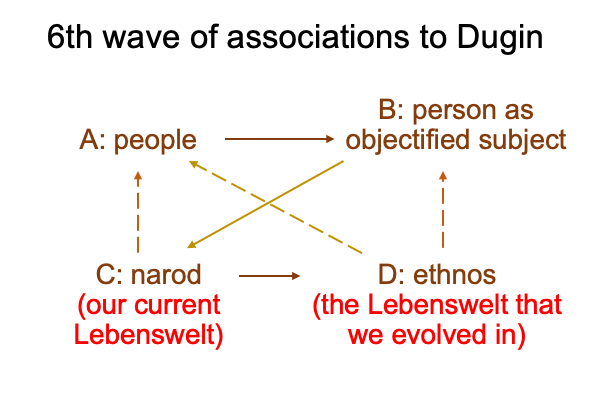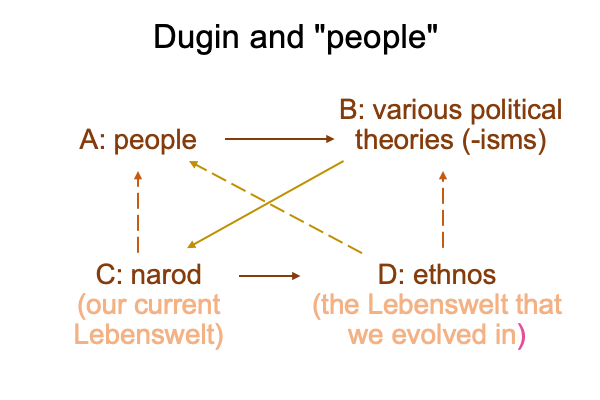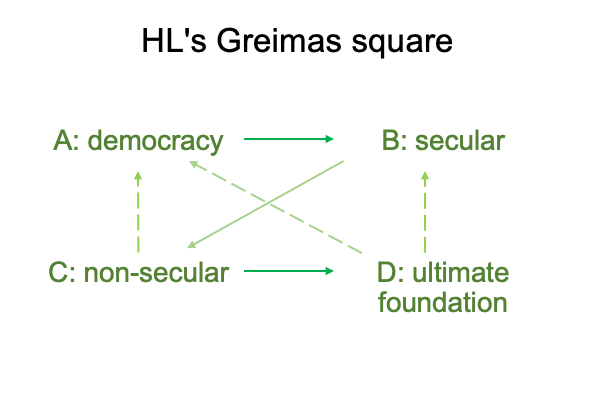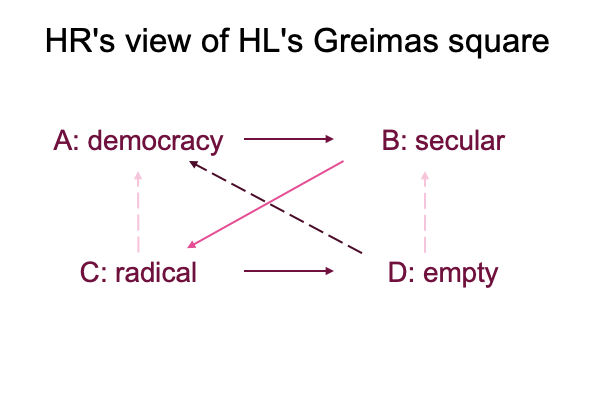Looking at Michael Millerman’s Chapter (2022) “…Dimensions of Dugin’s Populism” (Part 1 of 9)
0001 In late 2022, Americans loathe the Russian civilization because the Soviet Union was a existential enemy during the Third Battle Among the Enlightenment Gods: The Cold War Among Materialist Ideologies (1945-1989 AD).
After the collapse of the Soviet Union, not much has been done to alter Americans’ fears, even though lots of water has passed beneath the bridge of history. Indeed, much has been done expressly to conceal those waters, full of greed, ambition, illusion and delusion. The modern intelligensia is guilty of sins of omission.
0002 Here is a brief remediation of that sin, which, unfortunately, may itself be a transgression.
When the Cold War ends in 1989, many difficult to comprehend events follow. Boris Yeltsin supervises a firesale of Russian state property. Maybe, “firesale” is not the right word. “A mind-bending transfer of ownership” may be better. Soon, oligarchs corral entire industries and markets. Russian GDP falls like no tomorrow.
Then, before the wholesale transfer of Russian commodity wealth is fully consummated, Vladimir Putin steps from under the wings of Yeltsin’s weakness and corruption. Following a series of explosive events, Putin manages to secure leadership of the listing ship of the Russian State. He rights the boat, sending many overboard (so to speak).
The predatory wolves of the American Empire do not forget. They lick their wounds. They plan their revenge.
0003 Oh, so that is the reason why nearly every mouthpiece of the American Regime denounces Russia, as if it is still the Soviet Union of old. When the Americans win, they want total surrender. So, the American citizen remains informed that the Cold War never really came to a conclusion.
Just as America once looked to the East and saw an “iron curtain”, Russia now looks West and experiences a “word curtain”.
0004 Of course, this brief transgression into history is required to introduce the tragic philosopher, Alexander Dugin. From 1989 on, Dugin formulates and proposes new ideas concerning the fact that Russia did not totally surrender to America’s empire religion. His struggles culminate in a book that finally breaks through the Western word-curtain about how bad Russia is. That book is titled, The Fourth Political Theory. First published in Russian, an English translation comes out in 2012.
Three years later, Razie Mah electronically publishes Comments On Alexander Dugin’s Book (2012) The Fourth Political Theory. This commentary is available at smashwords and other e-book venues.
0005 Simultaneously, as well as more amazingly, Michael Millerman decides to make the philosophical work of Alexander Dugin the topic of his doctorate in philosophy. Oh, that does not go well. How dare this young intellect challenge the current narrative. Dugin should go into a box. He is a fascist. Or rather, a communist. Or something similarly unsavory, like a Eurasianist. Yes, that box should never be opened.
0006 Michael Millerman, like Pandora, opens the box. And the last monstrosity to emerge is hope.
He actually graduates with his doctorate.
The subsequently blacklisted Millerman starts his own school. The cancelled Millerman publishes the book that I currently examine: Inside Putin’s Brain: The Political Philosophy of Alexander Dugin (2022: Millerman School). Yes, Millerman starts a school. Look and see.
0007 In these blogs, I comment on chapter two, titled, “The Ethnosociological and Existential Dimensions of Dugin’s Populism”. This chapter is originally published in Telos (Winter, 2020).
In order for the reader gain an acquaintance with the Greimas square, I recommend blogs appearing at www.raziemah.com for January 2023. These blogs include Looking atAlex Jones’s Book (2022) The Great Reset and Notes on Daniel Esterlin’s Book (2020) 2045 Global Projects At War.




